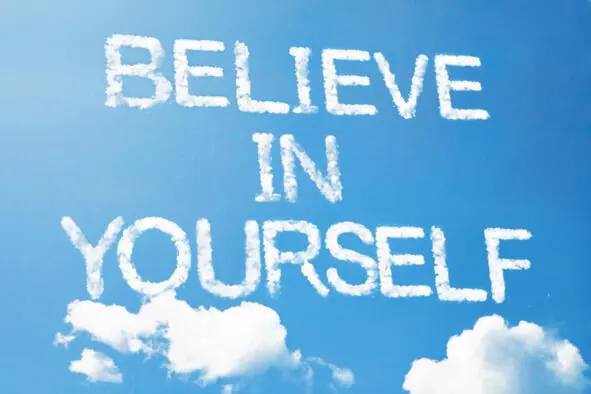Марина Грабарь - Английский для военных/Military English. Метод кейсов/Cases. Решения, ответы, словарь, глоссарий
- Название:Английский для военных/Military English. Метод кейсов/Cases. Решения, ответы, словарь, глоссарий
- Автор:
- Жанр:
- Издательство:неизвестно
- Год:неизвестен
- ISBN:9785449881755
- Рейтинг:
- Избранное:Добавить в избранное
-
Отзывы:
-
Ваша оценка:
Марина Грабарь - Английский для военных/Military English. Метод кейсов/Cases. Решения, ответы, словарь, глоссарий краткое содержание
Английский для военных/Military English. Метод кейсов/Cases. Решения, ответы, словарь, глоссарий - читать онлайн бесплатно ознакомительный отрывок
Интервал:
Закладка:
6. Simplify
After you’ve written a first draft of your speech, go back and look for words you can cut.
«Fewer Words = Clearer Point.»It helps her remember to always simplify a speech by cutting out words.

Exam
People make decisions based on what they see and hear.

Body language – make sure that you have a proper posture. If your shoulders are sagging and your legs are crossed, you will not appear as being sincere and people just will not ac-cept your message.
– Clothing. Talk about an outfit that inspires confidence, trust and strength.
– Articulation – articulation means how their total vocal process works.
– Pronunciation – you need to pronounce each word.
– Pitch – pitch refers to the highs and lows of the voice.
– Speed – the speed, or pace, is an important variable
to control. Between 140—160 words per minute is the nor-mal pace for a persuasive speech.
– Pauses – the pause, or caesura, is a critical persuasive tool. When they want to emphasize a certain word, have them just pause for one second before; this highlights the word.
– Volume – volume is another good tool for a persua-sive speech.
– Quality – quality of voice is gauged by the overall impact that their voice has on their listeners.
– Use of notes.
– Know 100 Words For Every Word That You Speak.
– Record Yourself And Learn Your Voice
Record your speech on your phone or video camera. end.
– Then listen to it or watch it, and make notes on how you could make it better. Some people do not like listen-ing to the sound of their voice on tape, so it is important that you get used to your own voice and speaking style.
– Try to eliminate all of your fears of rejection.The audience is there to listen to you for a reason.
Focus On The Material, Not The Audience.. Re-member that there will always be people who are bored or tired. None of these audience reac-tions have anything to do with you personally.
– Your strongest critic is you.When you finish a speech or delivering a presentation, give yourself a pat on the back.
– You overcame your fears and you did it.
Have pride in yourself.
In 2014, Naval Admiral William McRaven gave one of the most motivational and inspiring commencement addresses. Filled with personal experiences and timeless advice, and after 37 years of military service, I consider this advice worth taking. Admiral McRaven lays out the 10 life lessons from his experience as a Navy SEAL that can be applied to all areas of our life.
Speech Transcript
President Powers, Provost Fenves, Deans, members of the faculty, family and friends and most importantly, the class of 2014. Congratulations on your achieve-ment.
It’s been almost 37 years to the day that I graduated from UT. I remember a lot of things about that day. I remember I had throbbing headache from a party the night before. I remember I had a serious girlfriend, whom I later married – that’s important to remember by the way – and I remember that I was getting commissioned in the Navy that day.
But of all the things I remember, I don’t have a clue who the commencement speaker was that evening, and I certainly don’t remember anything they said. So, acknowledg-ing that fact, if I can’t make this commencement speech memorable, I will at least try to make it short.
The University’s slogan is, «What starts here changes the world.» I have to admit – I kinda like it. «What starts here changes the world.»
Tonight there are almost 8,000 students graduating from UT. That great paragon of analytical rigor, Ask.Com, says that the average American will meet 10,000 people in their lifetime. That’s a lot of folks. But, if every one of you changed the lives of just 10 people – and each one of those folks changed the lives of another 10 people – just 10 – then in five generations – 125 years – the class of 2014 will have changed the lives of 800 million people.
800 million people – think of it – over twice the population of the United States. Go one more generation and you can change the entire population of the world – eight billion people.
If you think it’s hard to change the lives of 10 people – change their lives forever – you’re wrong. I saw it happen every day in Iraq and Afghanistan: A young Army offi-cer makes a decision to go left instead of right down a road in Baghdad and the 10 soldiers in his squad are saved from close-in ambush. In Kandahar province, Afgha-nistan, a non-commissioned officer from the Female Engagement Team senses something isn’t right and directs the infantry platoon away from a 500-pound IED, saving the lives of a dozen soldiers.
But, if you think about it, not only were these soldiers saved by the decisions of one person, but their children yet unborn were also saved. And their children’s children were saved. Generations were saved by one decision, by one person.
But changing the world can happen anywhere and anyone can do it. So, what starts here can indeed change the world, but the question is – what will the world look like after you change it?
Well, I am confident that it will look much, much better. But if you will humor this old sailor for just a moment, I have a few suggestions that may help you on your way to a better a world. And while these lessons were learned during my time in the military, I can assure you that it matters not whether you ever served a day in uniform. It mat-ters not your gender, your ethnic or religious background, your orientation or your so-cial status.
Our struggles in this world are similar, and the lessons to overcome those struggles and to move forward – changing ourselves and the world around us – will apply equally to all.
I have been a Navy SEAL for 36 years. But it all began when I left UT for Basic SEAL training in Coronado, California. Basic SEAL training is six months of long torturous runs in the soft sand, midnight swims in the cold water off San Diego, obstacles courses, unending calisthenics, days without sleep and always being cold, wet and miserable. It is six months of being constantly harrassed by professionally trained warriors who seek to find the weak of mind and body and eliminate them from ever becoming a Navy SEAL.
But, the training also seeks to find those students who can lead in an environment of constant stress, chaos, failure and hardships. To me basic SEAL training was a life-time of challenges crammed into six months.
So, here are the 10 lessons I learned from basic SEAL training that hopefully will be of value to you as you move forward in life.
Every morning in basic SEAL training, my instructors, who at the time were all Viet-nam veterans, would show up in my barracks room and the first thing they would in-spect was your bed. If you did it right, the corners would be square, the covers pulled tight, the pillow centered just under the headboard and the extra blanket folded neatly at the foot of the rack – that’s Navy talk for bed.
It was a simple task – mundane at best. But every morning we were required to make our bed to perfection. It seemed a little ridiculous at the time, particularly in light of the fact that were aspiring to be real warriors, tough battle-hardened SEALs, but the wisdom of this simple act has been proven to me many times over.
If you make your bed every morning you will have accomplished the first task of the day. It will give you a small sense of pride, and it will encourage you to do another task and another and another. By the end of the day, that one task completed will have turned into many tasks completed. Making your bed will also reinforce the fact that little things in life matter. If you can’t do the little things right, you will never do the big things right.
And, if by chance you have a miserable day, you will come home to a bed that is made – that you made – and a made bed gives you encouragement that tomorrow will be better.
If you want to change the world, start off by making your bed.
During SEAL training the students are broken down into boat crews. Each crew is seven students – three on each side of a small rubber boat and one coxswain to help guide the dingy. Every day your boat crew forms up on the beach and is instruct-ed to get through the surfzone and paddle several miles down the coast. In the win-ter, the surf off San Diego can get to be 8 to 10 feet high and it is exceedingly difficult to paddle through the plunging surf unless everyone digs in. Every paddle must be synchronized to the stroke count of the coxswain. Everyone must exert equal effort or the boat will turn against the wave and be unceremoniously tossed back on the beach.
For the boat to make it to its destination, everyone must paddle. You can’t change the world alone – you will need some help – and to truly get from your starting point to your destination takes friends, colleagues, the good will of strangers and a strong coxswain to guide them.
If you want to change the world, find someone to help you paddle.
Over a few weeks of difficult training my SEAL class, which started with 150 men, was down to just 35. There were now six boat crews of seven men each. I was in the boat with the tall guys, but the best boat crew we had was made up of the the little guys – the munchkin crew we called them – no one was over about five-foot-five.
The munchkin boat crew had one American Indian, one African American, one Polish American, one Greek American, one Italian American, and two tough kids from the midwest. They out-paddled, out-ran and out-swam all the other boat crews. The big men in the other boat crews would always make good-natured fun of the tiny little flip-pers the munchkins put on their tiny little feet prior to every swim. But somehow these little guys, from every corner of the nation and the world, always had the last laugh – swimming faster than everyone and reaching the shore long before the rest of us.
SEAL training was a great equalizer. Nothing mattered but your will to succeed. Not your color, not your ethnic background, not your education and not your social status.
If you want to change the world, measure a person by the size of their heart, not the size of their flippers.
Several times a week, the instructors would line up the class and do a uniform in-spection. It was exceptionally thorough. Your hat had to be perfectly starched, your uniform immaculately pressed and your belt buckle shiny and void of any smudges. But it seemed that no matter how much effort you put into starching your hat, or pressing your uniform or polishing your belt buckle – it just wasn’t good enough. The instructors would find «something» wrong.
For failing the uniform inspection, the student had to run, fully clothed into the surf-zone and then, wet from head to toe, roll around on the beach until every part of your body was covered with sand. The effect was known as a «sugar cookie.» You stayed in that uniform the rest of the day – cold, wet and sandy.
There were many a student who just couldn’t accept the fact that all their effort was in vain. That no matter how hard they tried to get the uniform right, it was unappreciat-ed. Those students didn’t make it through training. Those students didn’t understand the purpose of the drill. You were never going to succeed. You were never going to have a perfect uniform.
Читать дальшеИнтервал:
Закладка:










